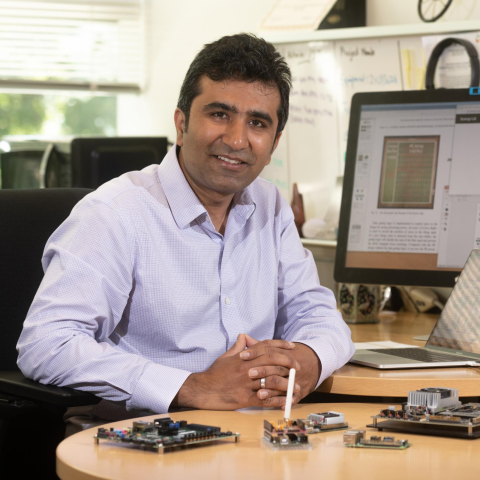Tushar Krishna

Tushar Krishna is an Associate Professor in the School of Electrical and Computer Engineering at Georgia Tech. He also holds the ON Semiconductor Junior Professorship. He has a Ph.D. in Electrical Engineering and Computer Science from MIT (2014), a M.S.E in Electrical Engineering from Princeton University (2009), and a B.Tech in Electrical Engineering from the Indian Institute of Technology (IIT) Delhi (2007). Before joining Georgia Tech in 2015, Krishna spent a year as a researcher at the VSSAD group at Intel, Massachusetts.
Krishna’s research spans computer architecture, interconnection networks, networks-on-chip (NoC) and deep learning accelerators – with a focus on optimizing data movement in modern computing systems. Three of his papers have been selected for IEEE Micro’s Top Picks from Computer Architecture, one more received an honorable mention, and three have won best paper awards. He received the National Science Foundation (NSF) CRII award in 2018, a Google Faculty Award in 2019, and a Facebook Faculty Award in 2019 and 2020.
Networks-on-Chip (NoC)Interconnection NetworksReconfigurable Computing and FPGAsHeterogeneous ArchitecturesDeep Learning Accelerators
- Computing and Communication Technologies
- Frontiers in Infrastructure








